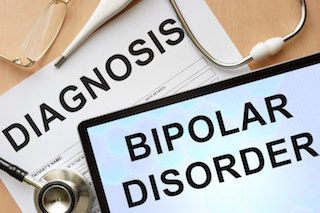Dealing with a Diagnosis of Bipolar Disorder
Bipolar disorder, formerly known as manic depression, is characterized by highs and lows in mood. A person living with bipolar disorder experiences shifts in their thought processes, energy levels, behaviors, and emotions. Although the onset of bipolar disorder is typically in early adulthood, an individual can begin to experience symptoms as a teenager. Receiving a diagnosis at such a young age can seem like the end of the world. This doesn’t have to be the case.
Feelings You Might Experience After Bipolar Disorder Diagnosis
Being diagnosed with bipolar disorder can seem overwhelming and scary, especially as a teen or young adult. Let’s be honest, there are a negative connotation and a lot of stigma that comes with the diagnosis. Some individuals experience feelings of shame or guilt after being diagnosed. They might wonder why they weren’t able to recognize and spot bipolar symptoms earlier or wonder why this is happening in the first place. Others might be in denial and struggle to accept a diagnosis. Confusion and fear aren’t uncommon.
There is a lot of information to absorb about how to live a healthy life with bipolar disorder and how to move forward after a diagnosis. It’s intimidating to think about where to go and what to do next. Keep in mind that there can also be some hope in diagnosis. For those who have been continuously misdiagnosed or living with symptoms for so long, it can come as a relief to be able to put a name to the symptoms and have a direction for finding support, treatments and therapy.
Tips for Coping with Diagnosis of Bipolar Disorder
When you live with a mood disorder, you quickly discover that coping skills can be your best friend. Here are a few tips on ways to cope with a diagnosis of bipolar disorder:
- Get to know your diagnosis. After receiving a diagnosis, spend some time getting acquainted it. Speak openly and honestly with your psychiatrist and therapist. Ask questions. Read about your diagnosis. As cliché as it sounds, knowledge is power.
- Build a support network. Identify the people in your life that you trust and be vocal. Ask for help when you need it. You don’t have to do this alone.
- Be nice to yourself. Self-talk is a powerful thing. Try not to stigmatize or make judgments about yourself. A diagnosis does not define you.
- Increase your self-care. Figure out what hurts and what helps. Do more of the things that make you feel better. Some great ideas include exercising, eating healthy meals, sleeping regularly, journaling, listening to music, meditating, keeping your appointments and talking to your supports.
Allow yourself to experience any feelings that come with that diagnosis. It’s natural to have a reaction. Use the diagnosis as a starting point in a journey toward health and wellness. Focus on learning as much as possible about how you can live a balanced life even with bipolar disorder. It is possible.
APA Reference
Dexter, G.
(2016, October 7). Dealing with a Diagnosis of Bipolar Disorder, HealthyPlace. Retrieved
on 2026, February 28 from https://www.healthyplace.com/blogs/bipolarvida/2016/10/dealing-with-a-diagnosis-of-bipolar-disorder
Author: Geralyn Dexter
My son is 18 and just diagnosed. Looking forward to more information.
Hi Anni,
HealthyPlace has lots of information on bipolar disorder. Find it here: https://www.healthyplace.com/bipolar-disorder
- Natasha Tracy